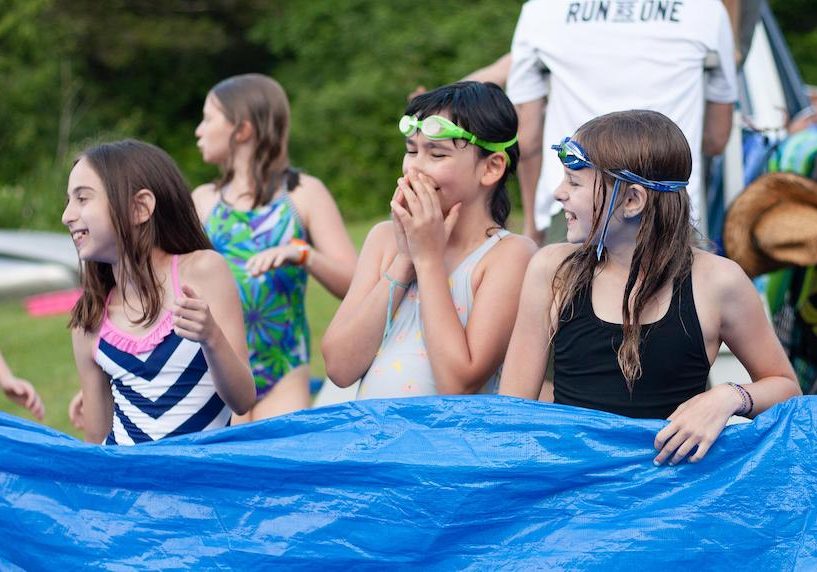Ask a camp director: How do you handle behavioral problems at camp?
Throughout the year I field many questions from parents about our policies and practices at Camp Walt Whitman. Since so many of my answers could easily apply to other camps, I’ve created this forum to answer the most common questions parents ask about sleepaway camp. Feel free to submit yours here for a future column.
A relatively common concern we hear from parents is how we handle behavioral problems at camp. It can feel upsetting not to be able to personally help your child handle an unpleasant social situation, but our professional camp staff is here to fill this role. If any child is having an issue with another child we are there to lend support, provide guidance, or simply handle the issue.
One of the scenes that sometimes plays out in parents’ imaginations is an image of their child curled up in the fetal position and all alone after getting picked on by other campers. This would never happen!
But will there be behavioral issues demonstrated by some campers during the summer? Of course, there will. While Camp Walt Whitman is known for attracting particularly kind children from great, down-to-earth families, the truth is it’s not a utopia. Sometimes really great kids say and do things that are inappropriate (just as they do at home). So we follow a number of protocols when a camper’s actions cross the line from respectful to disrespectful.
All kids feel safer when the limits are very clear, so we begin each summer at our opening campfire articulating what it means to be part of the CWW community and the associated expectations. Campers understand that we are a community built upon mutual respect. We don’t need to be best friends with every member of our community but we do make it clear that you have to be respectful of each individual. By creating a common understanding of our expectations from the individuals in our community, we can often get upstream of the problem and prevent inappropriate behavior before it occurs.
One of the great features of Camp Walt Whitman is that we have two cabin counselors in every cabin who are with the campers all day. Our counselors don’t become our instructors, coaches, or teachers, but instead, focus their attention on group dynamics and making sure that campers are having fun, making friends and getting along. Campers look up to their counselors as some combination of a best friend, older sibling, and parent all rolled into one. When campers act inappropriately, whether, through poor language, bad sportsmanship, social exclusion or teasing, the counselors are right there to put gently put their hand on the child’s shoulder and say, “Hey, that’s not cool” or “That’s not how we do things at this camp.” Because the campers look up to their counselors, more often than not this is enough to end the behavior.

Unfortunately, there are times when the counselor addresses the behavior, and the behavior doesn’t change. When this happens, the Head Counselor for that age group is quickly notified, and since we, as camp directors, meet with our Head Counselors every day to discuss any problems or challenges, we immediately begin to strategize ways to create behavior change. This might include a one-on-one conversation with the Head Counselor, a Behavior Agreement, or some sort of carrot and stick proposition to encourage behavior change.
From this point forward, we involve camper parents in the process as well. We will call the child’s parents, explain the behavior we are seeing and what we have tried to do to stop it along with why it can’t continue, and then seek the parent’s help and guidance as they know their children best. Oftentimes parents will provide great suggestions that when implemented cause the positive behavior change we are seeking.
Ultimately, if a child’s behavior still does not change, we will arrange for a phone call home with us, the child and the child’s parents. On that phone call home, with the child listening in our office, we will explain to the parents that we don’t have a lot of rules at camp, but one rule we do have is that campers can’t be mean and/or negatively impact the experience of our other campers. And if the negative behavior continues, the child will have to leave camp.
Nobody wants this outcome—not us, not the parents, and least of all the child. And 9 out of 10 times when good kids hear from the camp director and their parents that certain behavior must change, and are offered the strategies for how to do so, the behavior ends.
Unfortunately, on rare occasions, even after all of these interventions, when a child’s behavior continues to negatively impact other people, we are forced to make the decision for the child to leave camp. It doesn’t happen often, but camp is too short to have inappropriate behavior continue for days and weeks at a time. While we encourage campers to test their boundaries at camp, our job, as adults, is to set the limits.








